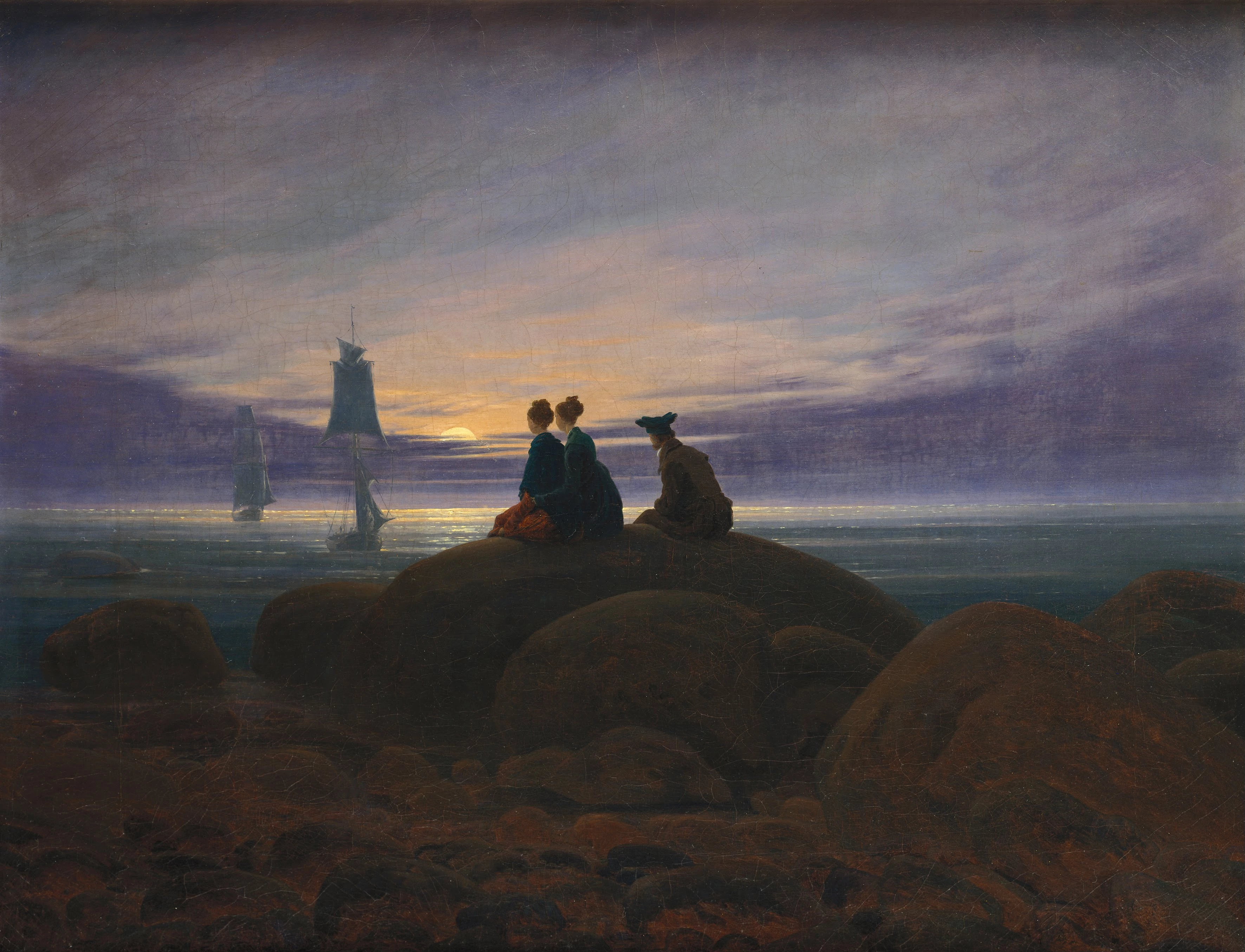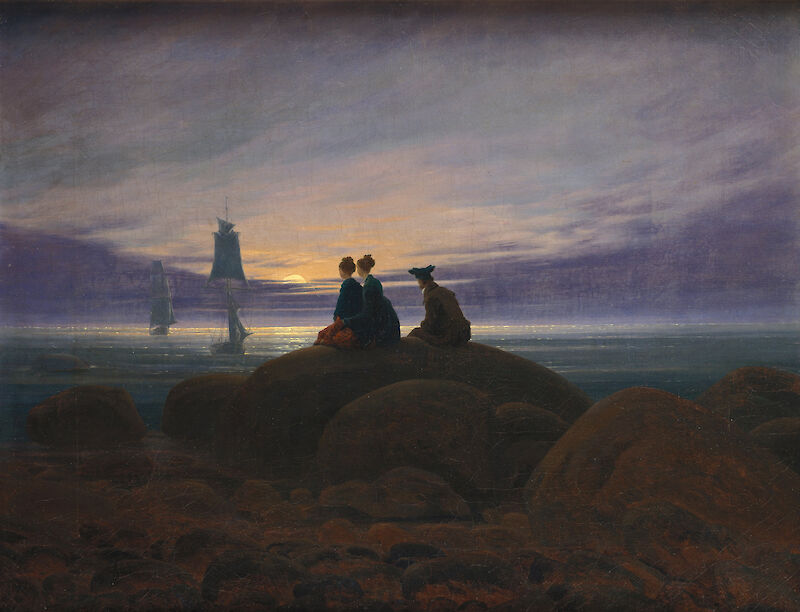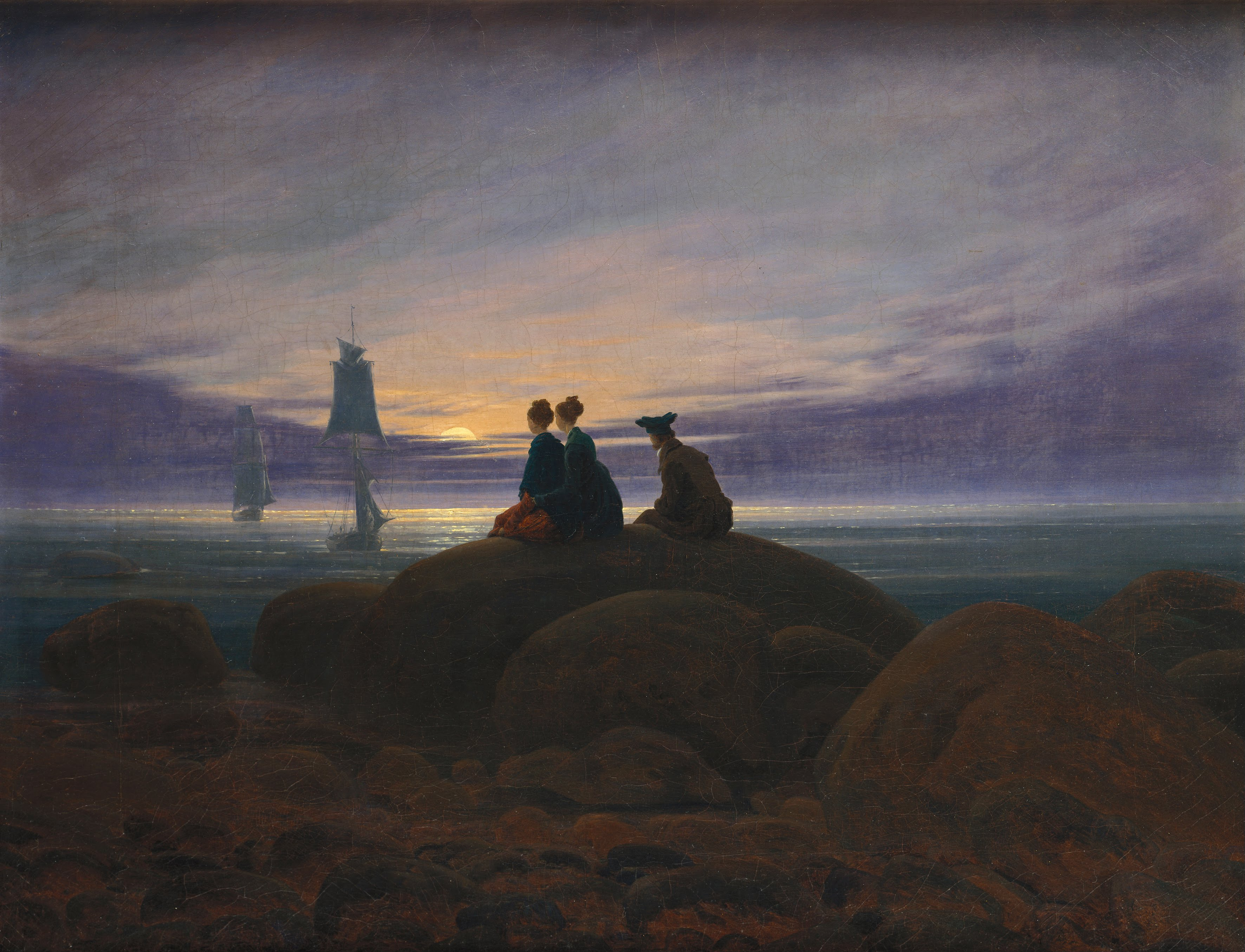


“They feel the purging and flooding, the strange passing of the apparitions, the mystery of where and from where. The heaviness of the elementary penetrates the devout hearts and fills them with the silence of the stones. But the more quickly your senses pursue the wonderful appearance, longing carries you far away.”
German art historian Willi Wolfradt pulled out all the stops in his description of Moonrise over the Sea, a small canvas by Caspar David Friedrich. At first glance, Moonrise is a modest image. Three figures sit on an outcrop of stone, watching ships pass as the moon rises over Baltic Sea.
It’s a quiet scene, and while it features Friedrich’s favorite almost-symmetrical composition, it lacks the steep mountains or melodramatic clouds of his well-known works. And this was intentional. Moonrise was one of two paintings commissioned by the art collector Joachim Heinrich Wilhelm Wagener, which together formed a yin-yang of morning and evening—a thematic tradition developed by Claude Lorrain. Friedrich opened the pair with The Lone Tree, a bright, morning scene overlooking a sweeping valley, and by closing with Moonrise over the Sea, Friedrich played to the spiritual core of Romantic art—the tide, the cycles of day and night, of beginning and ending, birth and death. Maybe that’s why Wolfradt waxes so poetic over this quiet little painting.
